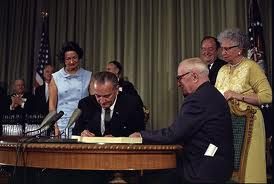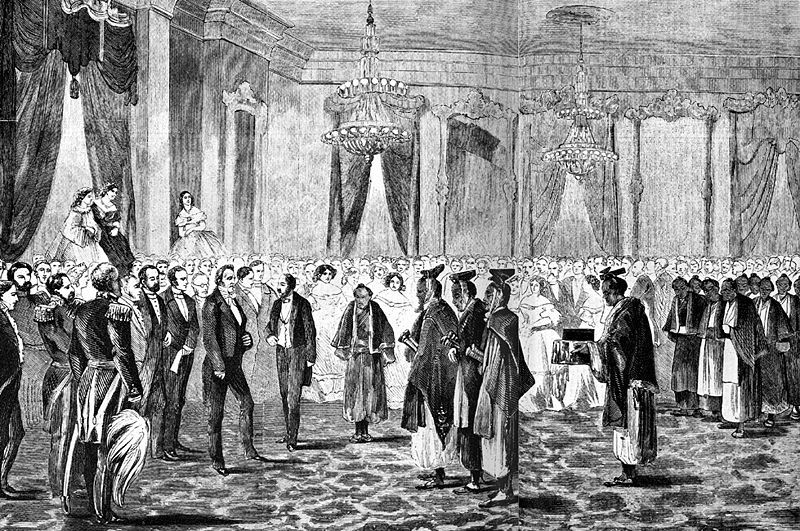This is your morning Open Thread. Pour your favorite beverage and review the past and comment on the future.
Find the past “On This Day in History” here.
July 28 is the 209th day of the year (210th in leap years) in the Gregorian calendar. There are 156 days remaining until the end of the year.

On this day in 1868, following its ratification by the necessary three-quarters of U.S. states, the 14th Amendment, guaranteeing to African Americans citizenship and all its privileges, is officially adopted into the U.S. Constitution.
snip
In the decades after its adoption, the equal protection clause was cited by a number of African American activists who argued that racial segregation denied them the equal protection of law. However, in 1896, the U.S. Supreme Court ruled in Plessy v. Ferguson that states could constitutionally provide segregated facilities for African Americans, so long as they were equal to those afforded white persons. The Plessy v. Ferguson decision, which announced federal toleration of the so-called “separate but equal” doctrine, was eventually used to justify segregating all public facilities, including railroad cars, restaurants, hospitals, and schools. However, “colored” facilities were never equal to their white counterparts, and African Americans suffered through decades of debilitating discrimination in the South and elsewhere. In 1954, Plessy v. Ferguson was finally struck down by the Supreme Court in its ruling in Brown v. Board of Education of Topeka.
The Fourteenth Amendment (Amendment XIV) to the United States Constitution was adopted on July 29, 1868 as one of the Reconstruction Amendments.
Its Citizenship Clause provides a broad definition of citizenship that overruled the decision in Dred Scott v. Sandford (1857), which held that blacks could not be citizens of the United States.
Its Due Process Clause prohibits state and local governments from depriving people (individual and corporate) of life, liberty, or property without certain steps being taken. This clause has been used to make most of the Bill of Rights applicable to the states, as well as to recognize substantive rights and procedural rights.
Its Equal Protection Clause requires each state to provide equal protection under the law to all people within its jurisdiction. This clause later became the basis for Brown v. Board of Education (1954), the Supreme Court decision which precipitated the dismantling of racial segregation in the United States.
The there is that pertinent and pesky Article 4:
Section 4. The validity of the public debt of the United States, authorized by law, including debts incurred for payment of pensions and bounties for services in suppressing insurrection or rebellion, shall not be questioned. But neither the United States nor any State shall assume or pay any debt or obligation incurred in aid of insurrection or rebellion against the United States, or any claim for the loss or emancipation of any slave; but all such debts, obligations and claims shall be held illegal and void.
Validity of public debt
Section 4 confirmed the legitimacy of all United States public debt appropriated by the Congress. It also confirmed that neither the United States nor any state would pay for the loss of slaves or debts that had been incurred by the Confederacy. For example, several English and French banks had lent money to the South during the war. In Perry v. United States (1935), the Supreme Court ruled that under Section 4 voiding a United States government bond “went beyond the congressional power.” Section 4 has been cited (during the debate in July of 2011 over whether to raise the U.S. debt ceiling) by some legal experts and Democratic members in the U.S. House Democratic caucus, as giving current President Barack Obama the authority to unilaterally raise the debt ceiling if the Congress does not appear to be able to pass an agreement by Tuesday, August 2, 2011. The White House Press Office and President Obama have said that it will not be resorted to, though Democratic members of the House that support the move are formally petitioning him to do so “for the sake of the country’s fiscal stability.” A final resolution to the crisis has not yet been decided upon.




Recent Comments